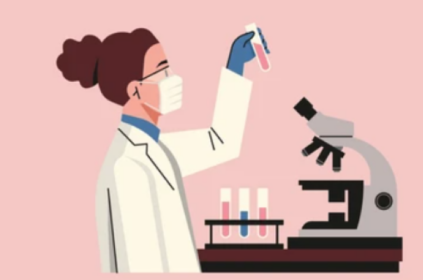Glucagon-like peptide 1 (GLP-1) receptor agonists are a class of drugs used to manage type 2 diabetes (T2D) and obesity. GLP-1s assist in blood sugar management and weight loss. Doctors questioned whether GLP-1 use could lead to longer-term side effects later in life. For example, did GLP-1 use increase the risk of pancreatic cancer in adults with T2D compared to basal insulin use?
Michael Monostra writes in Healio that a research team explored this question in a cohort study. The results, published in JAMA Network Open, evaluated data from 543,595 adults with T2D. More individuals (19.7%) used basal insulin treatment, with a smaller percentage (6.1%) using GLP-1s. Researchers then cross-referenced the prevalence of pancreatic cancer. The data was collected over eight years.
Researchers found 1,665 individuals living with pancreatic cancer. After considering and adjusting for factors, the research team found that taking one standard dose of GLP-1s a year prior to a pancreatic cancer diagnosis was linked to a lower pancreatic cancer risk than taking insulin. Using GLP-1s up to four years prior was also linked to a lower risk. But there was no difference between the insulin and GLP-1 groups within the 5-7 year point.
The study investigators note, however, that additional studies could provide more insight. They share that the study population was relatively healthy, had low levels of alcohol consumption, and healthy diet habits. Further studies could consider the impact of alcohol consumption or other lifestyle factors. Additionally, researchers could explore whether the pancreatic cancer risk differed in people receiving GLP-1s for obesity rather than type 2 diabetes.
Read more about this study over at Healio, or find the published results at JAMA Network Open.
Editor’s Note: Get Involved!
Cancer doesn’t discriminate. WHATNEXT and its partners are interested in amplifying the voices of those from all identities and backgrounds. If you have a cancer journey to share, reach out here to learn more about how your voice can help spread awareness and inspire individuals from all walks of life.
What to Know: Pancreatic Cancer
The pancreas is an organ in your abdomen. It converts food into energy for the body, aids in digestion, and plays a role in blood sugar management. Pancreatic cancer occurs when cancer forms in this important organ. The exocrine form, where the cancer forms in cells lining the pancreatic ducts, is most common. This cancer may also manifest in hormone-producing cells called neuroendocrine cells. While this form is rarer, the National Cancer Institute notes that it often has a better prognosis. This cancer is associated with older age, smoking, obesity, and a family history of this cancer.
The chance of treating and curing pancreatic cancer increases the early it is found. Unfortunately, pancreatic cancer is often difficult to detect early because it shows no symptoms. By the time symptoms appear, the cancer has often metastasized (spread) to other areas of the body. When symptoms appear, they may include newly onset or worsening diabetes, losing weight without trying, abdominal pain, jaundice, appetite loss, dark urine, fatigue, and blood clots.
Doctors may leverage surgery, chemotherapy, radiation, and targeted therapy to treat this cancer. If you have this cancer, please speak with your doctor about your best line of treatment.
Additionally, if you have pancreatic cancer, you are not alone. Consider finding support and leveraging the resources of the Pancreatic Cancer Action Network (PCAN).
diabetes GLP-1 pancreatic cancer research
Last modified: February 20, 2024











